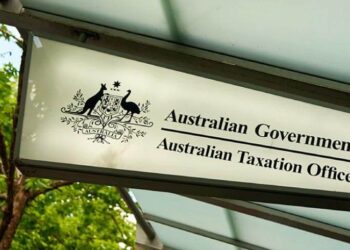AFA general manager of policy and professionalism Phil Anderson told sister title ifa it was “sensible” for those that were prepared and comfortable to sit the exam in June by remote proctoring to do so, given that a rule set out in FASEA’s legislative instrument prevented advisers who failed the exam from registering for a resit within 90 days of their last sitting.
“The LI for the exam says you cannot register to sit the exam until 90 days after you last sat it, and the registration period closes some time before the actual exam is on,” Mr Anderson said.
“So, if you sat it in August and didn’t pass, then you could not register again until 90 days afterwards, which means you couldn’t do the October exam. And the way they’ve scheduled it, what might have been a December is now a November exam, so it will be less than 90 days after the August exam.
“So, anyone who failed in August would not technically be eligible to sit the November exam.”
Mr Anderson said while the association had “a higher level of confidence” that legislation to extend the compliance deadline for the exam to 2022 would pass in the June sitting of Parliament, following political infighting that saw the bill fail to be tabled for debate in May, advisers would be wise to “not count their chickens”.
“Following the Treasurer’s announcement on stamping fees, we’ve received confirmation from the opposition that their amendment will be withdrawn, so the bill should hopefully get through in June.”
ifa understands AMP has been communicating the same message to their authorised representatives, underlining that advisers will need to sit the exam in June to have one more opportunity to resit if necessary.
AMP head of advice education, capability and careers Rod Edge told ifa the institution had been “encouraging advisers since the FASEA exam was launched to sit the exam as soon as they were able to”.
“We expect that all our advisers who wish to move forward as part of the AMP network will have passed the exam by the deadline, whether that is the existing deadline of 1 January 2021 or the proposed extension to 1 January 2022,” Mr Edge said.
Mr Anderson said if any further hold-ups meant the legislation was not passed in the Senate in time to see the deadline extended, there was “a high level of concern” that advisers who sat the exam later than June and failed could be removed from the ASIC adviser register before they got another opportunity to resit.
In an upcoming episode of The ifa Show podcast, BT head of financial literacy and advocacy Bryan Ashenden said advisers who were deregistered before they could pass the exam would face having to re-enter the industry through the “new adviser” pathway, meaning they would have to complete a full bachelor-level degree and a professional year.
“The adviser would lose their status as an existing adviser, so the only way they can come back into providing personal advice to a retail client is they need to make sure they have completed formal education, but no longer [being] an existing adviser, they will lose their current pathways,” Mr Ashenden said.
“They will then still need to complete the exam and pass it, but they will also be subject to a professional year. While the professional year might seem easier because they’ve got a lot of experience, technically [that] will also mean they need to have a supervisor, somebody looking over their shoulder and making sure they are doing the right thing.
“There’s no way you can escape that if you lose your existing adviser status and you want to come back in.”
Other options to extend deadline
Mr Anderson said the AFA had made the complication with the 90-day rule understood to the government, and was exploring other options if there were any further roadblocks to the passage of the extension bill, including compelling ASIC to provide regulatory relief or pushing for an amendment to FASEA’s legislative instrument.
“There is a solution whereby ASIC could provide an exemption, but it would require direction of the government — there is a power in the ASIC Act where the minister can direct them to do something,” he said.
“It’s rarely been used, but if this didn’t get through the Senate, there is still a fallback solution for an extension to be provided.
“It is also a possibility that FASEA could change the LI and remove the 90-day rule. If FASEA wanted to do it, it would be an exercise where they would need to draft up an amendment to the LI or issue a new LI.
“It’s not impossible, it wouldn’t require parliamentary approval — FASEA has the power to issue LIs and it has the power to change existing LIs.”
FASEA chief executive Stephen Glenfield told ifa the authority would “consider other options” in the event the extension bill had not passed by mid-August.
Mr Glenfield said the final exam sitting date of 5–10 November had been arrived at so that advisers could receive their results before the 1 January 2021 deadline.
“With an expected extension of the transition date to 31 December 2021, pending the passing of the bill in the Senate, FASEA would continue to offer exams for advisers throughout 2021,” Mr Glenfield said.
He added that the authority encouraged advisers to “take up the earliest possible exam sitting opportunity”.
According to FASEA statistics, 70 per cent of advisers currently on the ASIC register have not yet passed the exam.


